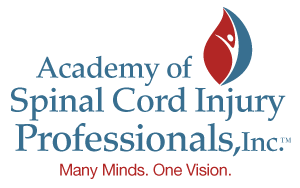SCI Medicine Fellowship Tips
For many resident physicians, a critical juncture in career development is the decision to seek fellowship or to go straight to the work force after graduation. We asked three members of ASCIP Early Career And Trainee Support (ECATS) committee; Drs. Kristi Henzel, MD, PhD, Alice Hon, MD, Felicia Skelton, MD for their thoughts and suggestions regarding Spinal Cord Injury Medicine fellowship training.
Begin as soon as possible exploring the field with a rotation in Spinal Cord Injury Medicine. For individuals interested in pursuing subspecialty specialization, the Spinal Cord Injury Medicine fellowship is a one year clinical ACGME accredited clinical fellowship for individuals interested in the care of persons with spinal cord injury. Subspecialty certification is offered to all ABMS member boards particularly those specialties that directly care for individuals with spinal cord injury including anesthesiology, emergency medicine family medicine, internal medicine, neurology, neurosurgery, orthopedic surgery, pediatrics, physical medicine and rehabilitation, plastic surgery, and urology. Consider joining the ASCIP ECATs mentoring program to learn more about the field.
The Academy of Spinal Cord Injury Professionals website has the most up to date information, including the list of the ACGME accredited spinal cord injury medicine fellowship programs participating in the match for the upcoming year, match information, and the timeline regarding the application process. Further information about each individual program can be found on the individual program’s webpage. At this time there is no central application process, so each program must be contacted individually. Research fellowships are not ACGME accredited, so are completed individually. Further information can be found here.
Regarding finding a good clinical fellowship, each individual has different interests. Before the application process consider your career goals and your objectives for completing a Spinal Cord Injury Medicine fellowship. During your search look for programs that fulfill your interests and skills you would like to develop. Ideally speak with either graduated or current fellow regarding their experience. Teaching experience, research, procedures, inpatient and outpatient work vary with each program. Find out where the graduated fellows are working (location, type of practice inpatient/outpatient, and type of institution academic/private/Veterans Administration) compared to your goals. In addition to reviewing the respective fellowship programs web pages, it is best to speak with individuals that recently graduated or are completing the fellowship program as they have first hand knowledge of the program. In our experience fellowship programs are usually able to provide contact information of recent or current fellows.
To be a competitive candidate, love what you do and get involved. Your passion for the field will show through. Networking is important. Reach out to alumni as they are often the best resource. The subspecialty of Spinal Cord Injury Medicine is very tight knit. Many fellowship program directors and the fellowship academic faculty attend conferences, particularly the annual Academy of Spinal Cord Injury Professionals during which some programs may interview prospective candidates. Consider attending the conference to meet various program faculty and recent/current fellows. For your top choices, consider a visit or if possible an away elective for a day to day feel. Complete the Spinal Cord Injury match and interview process. Best of luck!
Please see our Spinal Cord Injury Fellowship “How to Guide for Spinal Cord Injury Medicine Fellowship”.
Download CV templates here:
CV Template.docx
CV Template 2.docx
